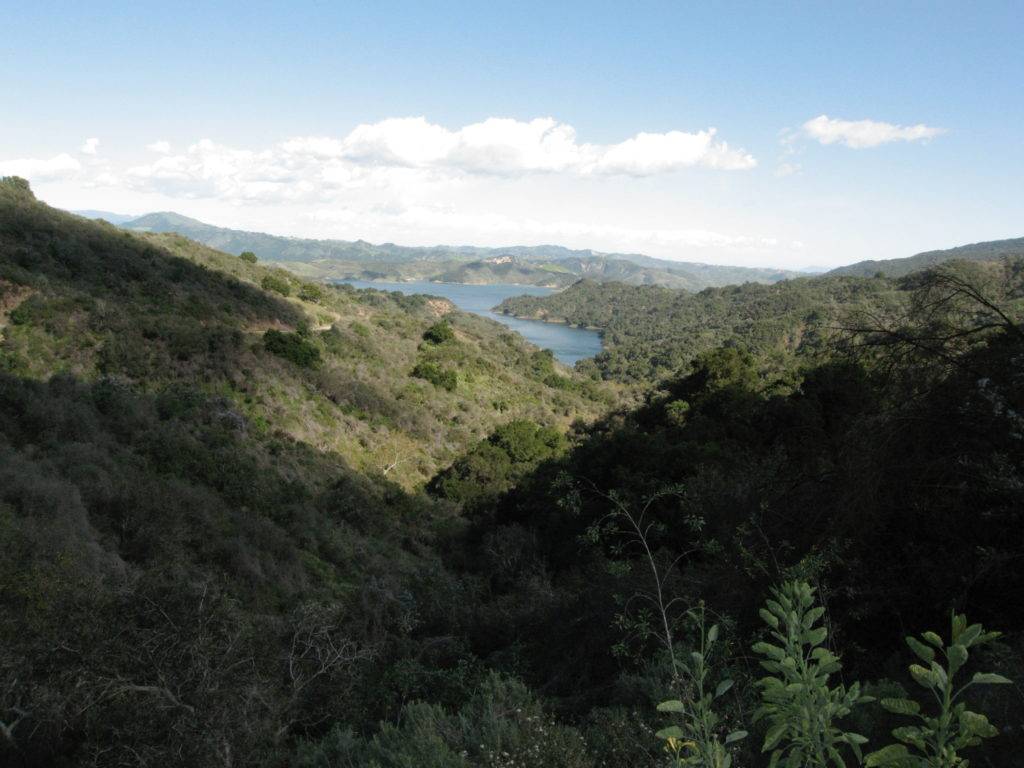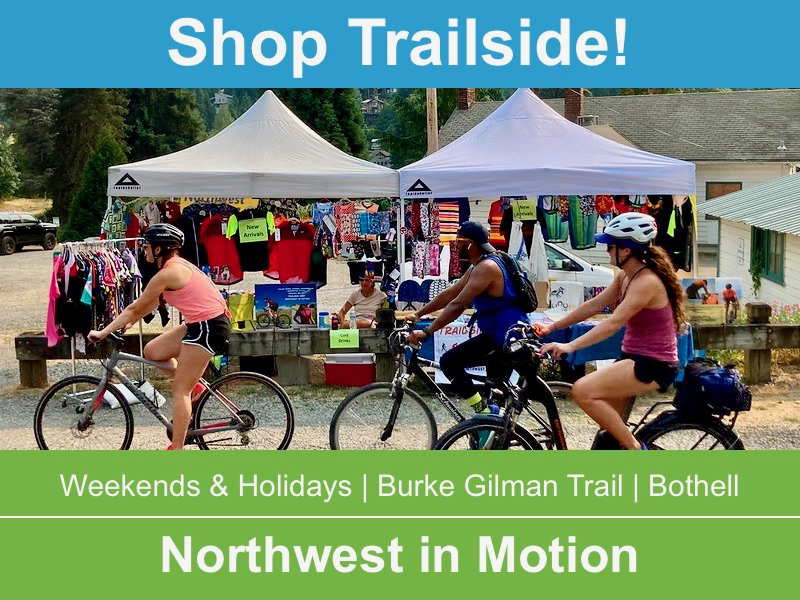Although many of us learn to cycle at an early age, by the time we’re teens it’s an outlier sport. As Conor Klupar mentioned in 2012 “Being a high school athlete is tough if your sport doesn’t involve a ball.”
Hence, it’s always exciting to see juniors who are passionate about cycling.
Sam Zivin has been on my radar for quite a while (his proud mom Julie does a great job of highlighting his cycling and fitness accomplishments on social media), and I was among the spectators at a Thursday Night Seward Park Series race last month when he demonstrated some amazing bike handling skills. As he exited the hairpin at the northwest corner of the course, he skidded sideways and his rear wheel hit the curb. Despite taco-ing the wheel he remained upright and was ready to stay in the fight. That maneuver and his aggressive attitude wowed the crowd.
In contrast to Conor, Sam has a slightly different perspective on high school athletics.
“Most of my classmates do ball sports, like most of the planet. But I never really found I was an outsider because of it. The most common problem I run into is people not knowing anything about the sport. Most people only rode bikes when they were under the age of 10, so they certainly don’t know anything about racing. That’s fair though, I’m happy to explain stuff if people are interested, though I don’t want to seem pretentious. I entered middle school right around when Lance admitted to doping, so that was a little awkward and I got hassled for that but it wasn’t bad.”
Sam initially got into cycling through his mom, and his interest grew as he got more involved in racing then joined a team.
“My mom had been racing for a few years, and after watching track at the Jerry Baker Memorial Velodrome I decided to take it up. I raced the junior track program for two summers, when I was 8 and 9 (2009 and 2010).”
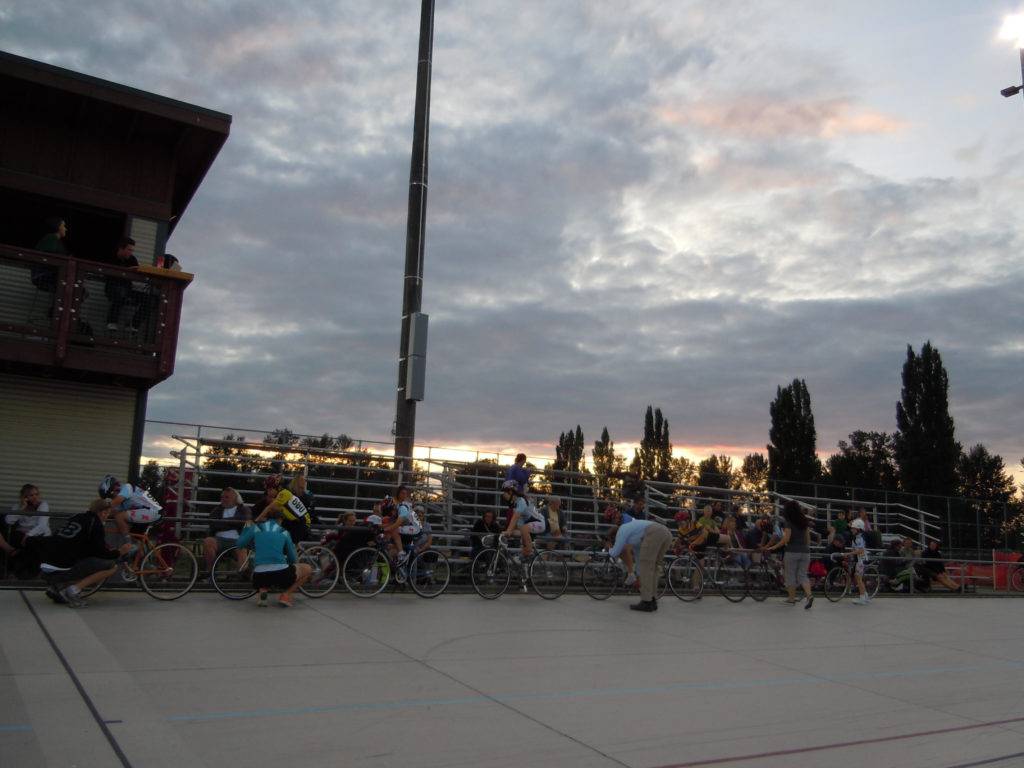
“Tela Crane taught me the first year, Amara Edwards the second year.”
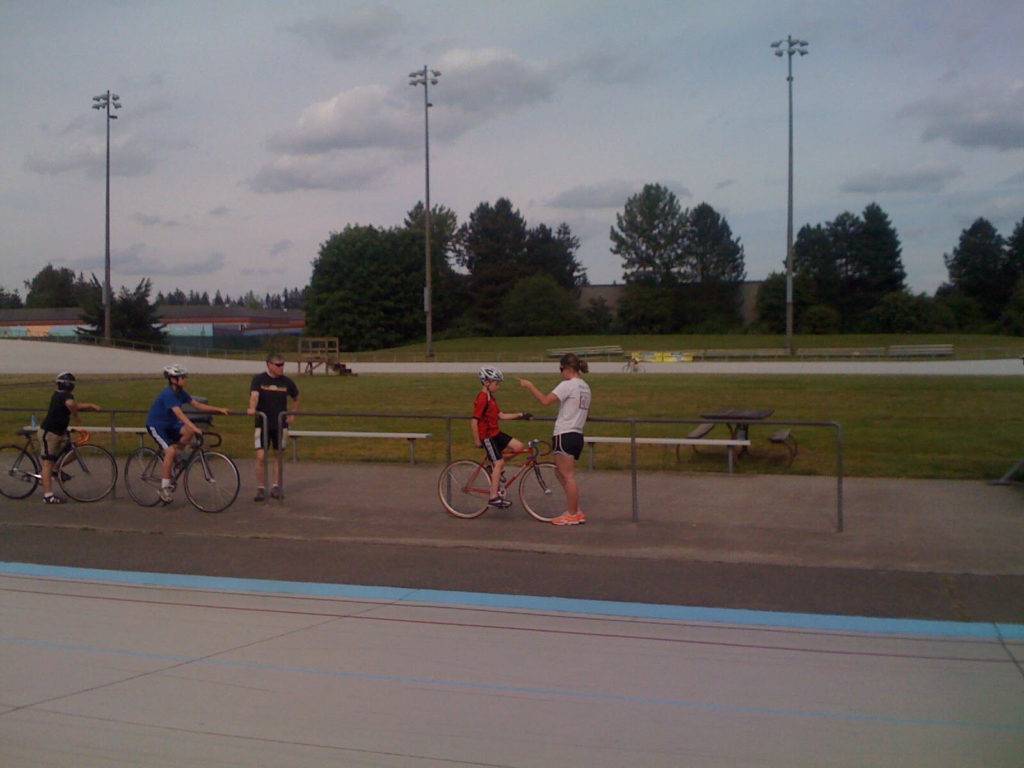
“I started cyclocross in 5th grade (2011) after a couple other kids in the track program started doing it. My first cross race was at Marymoor through MFG. I was on the JL Velo team for one year until the team was dissolved.”
“I started road racing in 2017 after wanting to try a new discipline. I did not come into the season prepared and decided to make Sequim my first road race. That was a mistake. There were strong crosswinds which blew me off the main group in just over a lap along and I got blown off the road on two separate occasions. I raced a partial season due to time constraints but finished with a 2nd place at Camano Island.”
Sam is currently racing for Audi, and has ridden with Bicycle Centres Everett (2015-2017), and Cycle U Juniors (2012-2014).
Sam played soccer in grades K-2, but “didn’t have much of an interest and moved on quickly.”
“I played basketball for most of elementary school taking a hiatus in 5th grade, but moved back into it for 6th and 7th grade. I joined basketball for similar reasons to soccer, my friends were playing it. I didn’t practice very much, so I didn’t become a particularly good player. 7th grade was my last season. I broke my arm skiing a few weeks into the season so that ended my basketball career.”
Although he got his start on the track, Sam has since tried different cycling disciplines.
“Starting in ‘cross was great because meeting different racers was easy since it’s very much a spectator sport. It also helped me learn handling skills early, so when I moved towards the road I could perform in crits, on descents, etc. It also gave me a way to train into the winter without having to do massive miles in the pouring rain, at least for part of the winter. Cross cuts out about 4 months of standard, long mileage, road training.”
“Road is great for a couple reasons, the training is more rigorous and provides much needed strength, and the team element can be fun. Road also taught me a bit more about proper nutrition, and general race strategy. Nutrition is more of a focus on the road because use of strength is more prevalent. It also taught me to use my strength more wisely, not blowing myself up in the first 20 minutes of the race. In cross I also had many mechanical issues, I had a mechanical in 5 out of 6 MFG races in the 2017 season, road has far less mechanicals, it makes racing less stressful.”
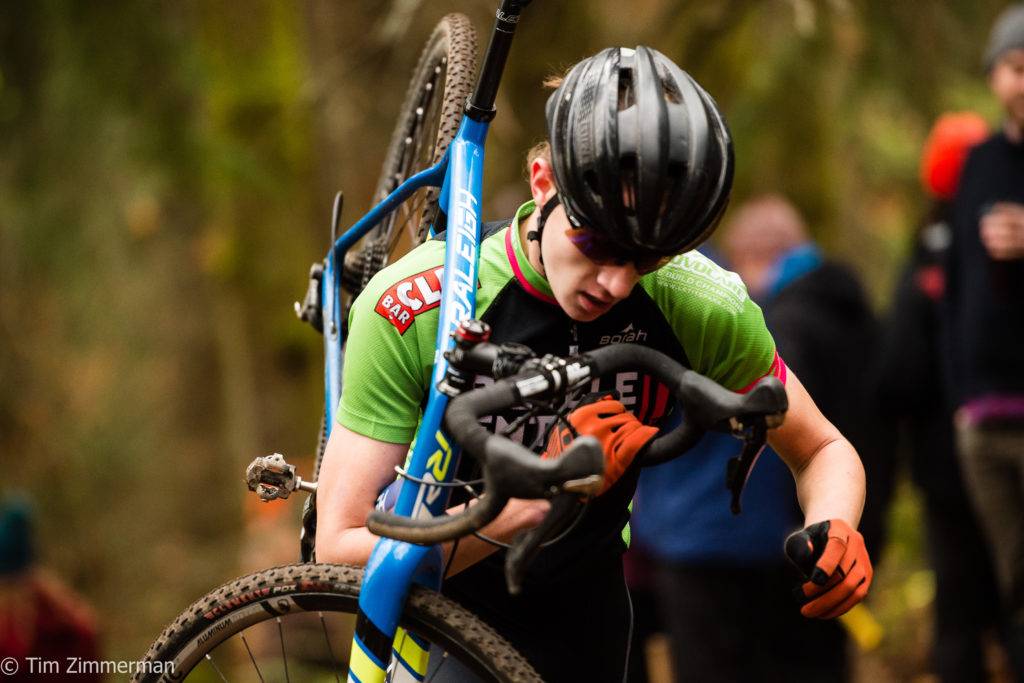
Sam went went to cyclocross nationals in 2015 with limited training and experience.
“I didn’t really know how to train, I just did my best with what I knew. That year our race got delayed a day because city arborists said the course couldn’t go over a certain root because we were killing it. The root had been ridden on for a week and the course had been approved by the city. The mud that day was actually great for me, I tend to handle comparatively better to my opponents in slippery mud rather than tacky mud. I find tacky mud has inconsistent moisture, so you’re never quite sure how you should distribute weight and control speed. Slick mud is consistently slippery, so you know what to expect, even if it is slower. For some reason during that race, my cantilever brakes got completely locked with mud, and after running to the pits to get a new bike, only to find that one got locked, I was pulled from the race. I didn’t know much about training, and very little about other kids. So to see the skill and determination of other young riders was an eye opening experience about what the potentials of the sport.”
Sam is sandbagging just a bit when he says he got a “late start” with cycling.
“I didn’t get into cycling seriously until probably two years ago at the start of high school. For a while I wished I had become serious earlier, I was way behind other guys my age. I wished I had put the time in, and maybe got on a D team, but I didn’t. I’ve since come to grips with that because the reality is I can’t do anything about it. All I can do now is put my best into the sport, and it seems to be working pretty well. Obviously I’ve got light years to go, but I know I’m putting in the work.”
In addition to cycling Sam is an avid skier.
“I’ve been skiing fairly full seasons since 6th grade, though this past season was significantly smaller due to increased road training and school. I did ski bus during middle school, but I just drive now cause I got a license. I’ve helped one of my friends with building film sets a couple times but other than that I don’t have any other extra curriculars. Cycling is enough of a commitment that I don’t have the time or energy for much else. School also takes up time, I’m a junior going on senior.”
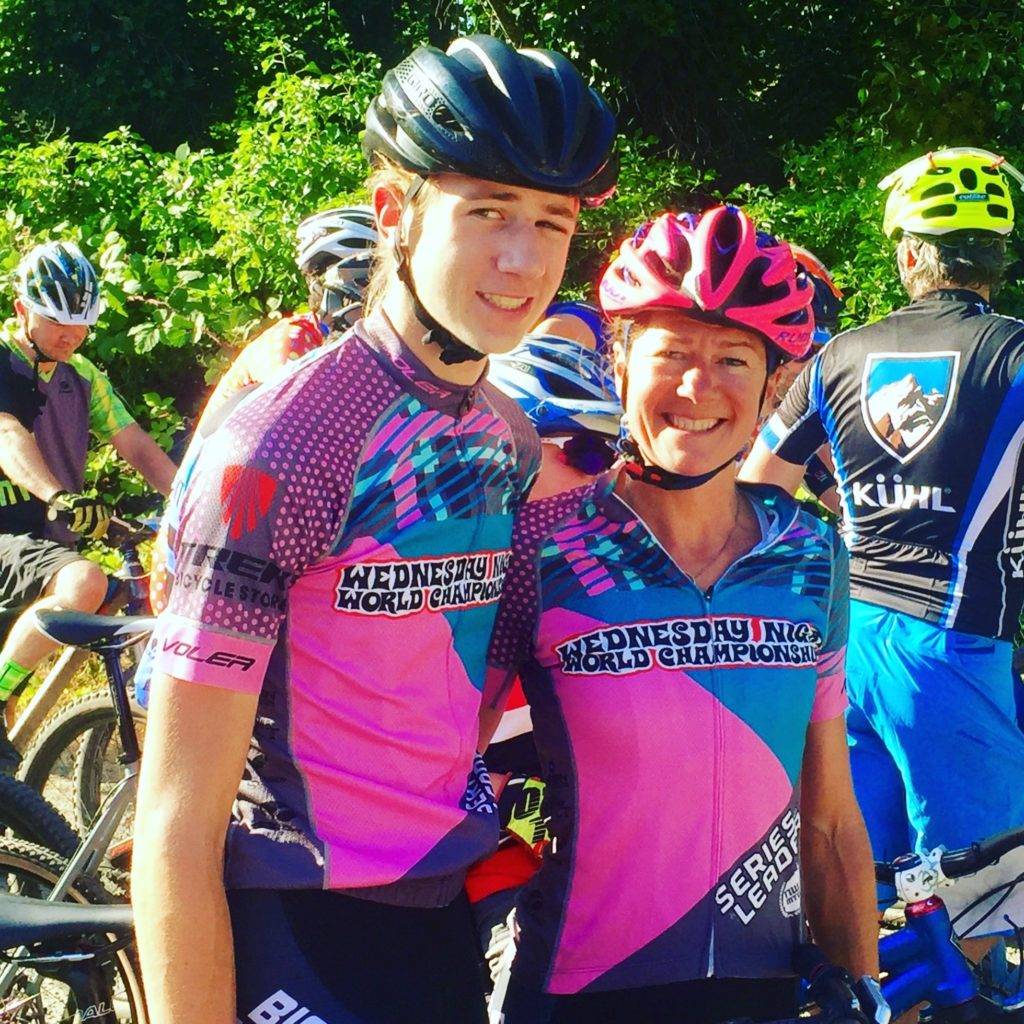
Sam says he benefits from solo and group training rides, as well as competition.
“Training rides tend to be a therapeutic experience for me. I’m not an incredibly social guy, so getting out on the road for a few hours can be a great stress reliever. Cycling has a balance of focus that I find is like meditation. You have to put enough focus into riding so you can train properly and also not fly off the road. This doesn’t allow for a ton of distracting thoughts, whatever those thoughts may be, school, social stuff, etc. Depending on where you go it can be quite peaceful, it’s a nice silence from being in the middle of the city.”
“You can really learn a lot from group rides. Riding with people are more experienced is a great way to understand the sport more and become better. It’s also nice when it’s pouring rain with gray skies and going solo maybe isn’t the best option.”
“For most people, including myself, a desire for competition and adrenaline are a fuel for racing. I don’t consider myself as an all-around competitive person, but for things I care about, mainly cycling, I’m very competitive. I don’t like doing badly, and I do what I can to improve, like other racers. I never really got into team sports, soccer, baseball, basketball, etc. . I’m not sure why, it could have been more of a ball sport thing, I’m terrible at ball sports. Racing is a good mix though, you can have solo efforts, especially with cross, and sometimes in road. But there is a social vibe to it, with lead outs, team riding and all that.”
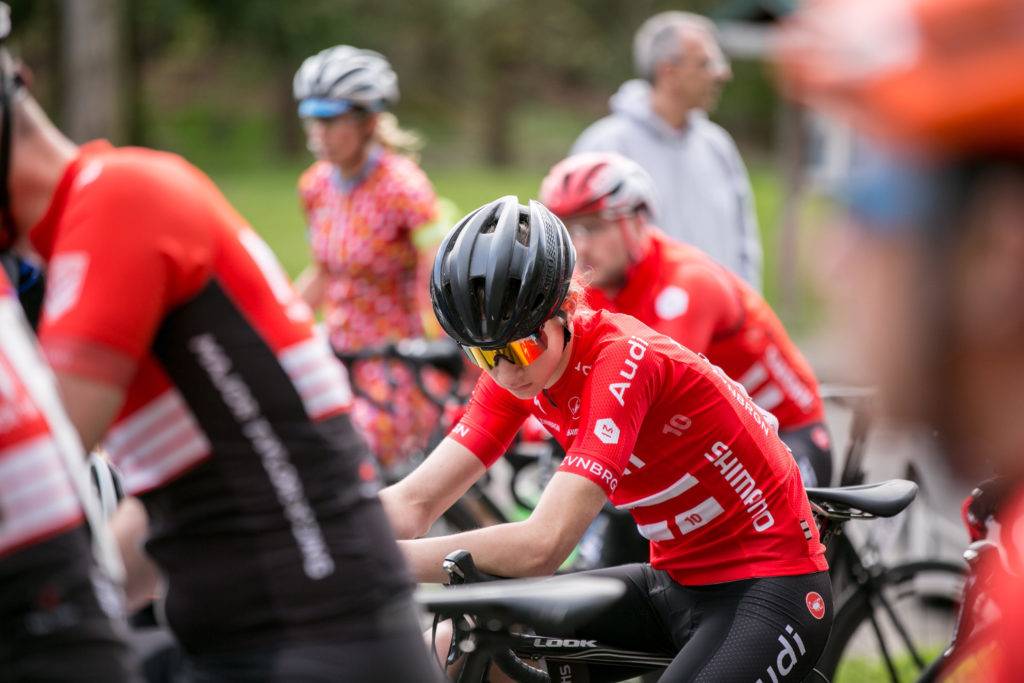
Sam has these tips for other teens thinking about getting into cycling:
“Watch some races, see if you really like it, and whether you can see yourself doing it all the time. It’s not a small commitment, it’s gonna suck your time and energy dry. But if you want it, go ahead. Racing as much as possible is key, the best race training is racing. Group riding as well, learn from more experienced people, getting your ass kicked on team rides builds character.”
